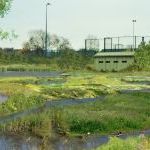Eco Schools
Eco Schools are passionate about engaging young people in environmental education and action. We do this by providing a simple, seven-step framework that guides, empowers and motivates pupils to drive change and improve environmental awareness in their school, local community and beyond. After completing the seven step process, schools can then apply for Eco-Schools Green Flag accreditation, which recognises, rewards and celebrates the environmental achievements of young people.Eco-Schools was founded in 1994, operates in 67 countries and engages 19.5 million young people globally. This makes Eco-Schools the largest educational programme on the planet.
Website
Country
Media
When a child gets actively involved with Eco-Schools, they enhance their development further. They build upon their previous acquired knowledge and learn to use these skills. They understand that they have a voice and that they have a safe platform to use it. They become minute makers, organisers, planners and influencers. Projects are inspired from their imagination, success is seen in a non-academic form, things get done and if they don’t there is the understanding, and sometimes frustration, of why it hasn’t been done.
Eco-Schools has the power to transform the pupils into forward-thinking, challenge-solving, decision-making adults of the future.
Jayson Taylor, Learning Mentor & Family Liason, Catherine Junior School
* TOP TIP *
'Draw up an action Plan for environmental actions that you can take in your school, college or nursery'
How is the project linked to climate change and sustainability?
All the 10 Eco-School topics relate to this issue in some way. By breaking this global issue into smaller ‘topics’ it helps guides young people to consider the manageable changes they can make in everyday life and helps to avoid eco-anxiety. The 10 topics are: Biodiversity, caring for all plants, animals and insects. Energy, reducing energy use and investigating greener energy. Global Citizenship, working with others on local and global issues. Healthy Living, improving mental and physical well-being. Litter, taking action to reduce litter. Marine, protecting rivers, canals, lakes, oceans. School Grounds, enhancing your learning environment. Transport, travelling in an environmentally-friendly manner. Waste, refusing, reducing, reusing, repairing and recycling. Water, protecting our most important natural resource.
Who is involved?
Eco-Schools aim to place young people at the heart of environmental actions. This approach engages, motivates and empowers young people to care for our planet now and throughout their lifetimes. They can celebrate success with the Eco-Schools Green Flag accreditation.
How are participants involved?
Applying for an Eco-Schools Green Flag is the perfect way to acknowledge, reward and celebrate the ecological achievements of young people. It creates the next generation of innovative, inspirational environmentalists and tells local communities that a school, college or nursery is forward-thinking and actively engaged in protecting our planet. Eco-Coordinators and their Eco-Committees are ready to apply for an Eco-Schools Green Flag after working through each of the Eco-Schools Seven Steps, which usually takes around one academic year.
It is important to re-emphasise that institutions are ready to apply when they have worked through each of the Eco-Schools Seven Steps – this is what the Green Flag assessment process measures and recognises. As an Eco-Schools Green Flag rewards and acknowledges schools who have completed the Seven Step process, some Eco-Schools Action Plans or projects might not be entirely complete by the time a school applies for Green Flag accreditation. The programme and its criteria is flexible enough to recognise this – especially as some Eco-Committees plan ambitious projects that may span years (or several Eco-Schools Green Flag applications)! It also allows our assessment process to focus and celebrate the changes that have been made instead of focusing on changes that haven’t been made (yet)!
Key steps:
1. Eco-Committee, a group of students and adults responsible for all things Eco-Schools.
2. Environmental Review, a free-to-download resource which has been designed to review learning environments and provide inspiration to Eco-Committees.
3. Action Plan, a plan for environmental actions in your school, college or nursery.
4. Curriculum Links, including environmental issues in your school’s, college’s, or nursery’s learning.
5. Informing and Involving, including all pupils, staff members and your local community in Eco-Schools work.
6. Monitoring and Evaluation, measuring the impact of the projects in your Action Plan.
7. Eco-Code, a rallying call that everyone can get behind!









